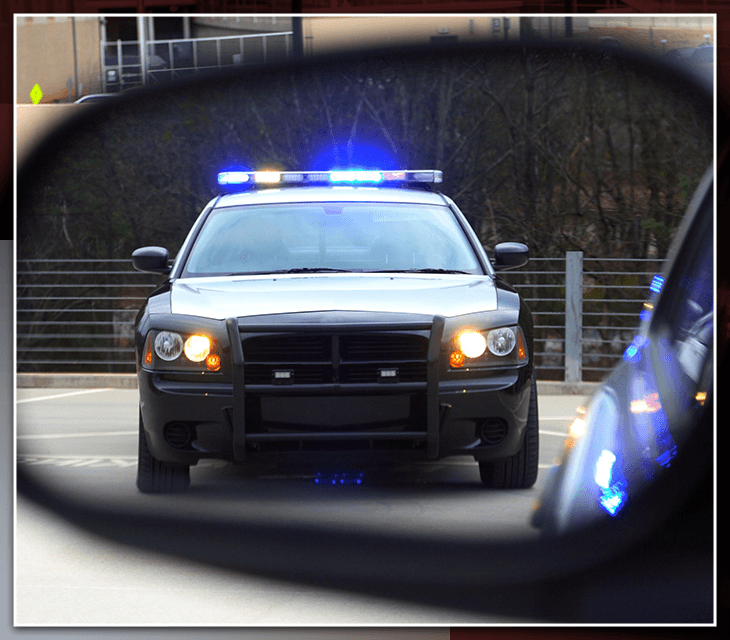
Drunk Driving Defense, DUI Arrest - FAQ's
The 20 most frequently asked questions by individuals involved with a DUI or a marijuana DUI case. Click on the links to view Mr. Taylor’s answers and/or recommendations. (The information provided here by the DUI defense firm has been referenced or linked to by more than 400 websites worldwide.)
For further information, see Lawrence Taylor’s DUI blog, the most popular DUI site on the internet.


Drunk Driving Arrest
FREQUENTLY ASKED QUESTIONS
-
What is it meant by mouth alcohol?
The term “mouth alcohol” refers to the presence alcohol in the mouth. A breath test result will show higher than normal results if the suspect has mouth alcohol. The breathalyzer uses a complex formula that takes the amount of alcohol and multiplies it by 2100 to get its results. The machine assumes the breath starts from the lungs. Factors such as these can create discrepancies is test results.
There are other potential reasons for having mouth alcohol:
- Breath fresheners do have trace amounts of alcohol. Products such as Listerine and Binaca contain small levels of alcohol and can certainly affect breath test results. Cough medicines such as NyQuil also contain alcohol and can affect test results the same way.
- Bodily functions such as hiccups, burps, or even vomit can also affect the test results. Actions such as these bring the vapors of alcohol from the stomach back up to the mouth.
- A hiatal hernia can also cause elevated test results.
- Dental caps and bridges can capture alcohol in a crevice and be blown out by a breath.
- If the suspect has a chronic reflux condition, alcohol can travel up from gastric distress.
-
What types of defense options do I have for my DUI case?
Each case has its own intricacies and have their own unique variables, thus the defenses are nearly unlimited. It is feasible to categorize some of the defenses into specific areas:
- Probable cause: The officer needs a valid reason to stop, detain, or arrest a suspect. Sobriety checkpoints do cause several complicated issues with probable cause.
- The Miranda Warning: If the Miranda Warning was not given at the proper time, any incriminating statements made by the individual can be denied.
- Chemical tests taken during the absorptive phase: The notion of
drinking one for the road
can create inaccurate results with the breath tests. It takes the body anywhere from 30 minutes to 3 hours to fully absorb alcohol into the system. Any chemical testing done during this time may not be accurate. Food in the stomach can elongate the absorptive phase. - Driving While Intoxicated: This charge is often not satisfactory in DUI cases and can be difficult to prove. For example, if there was an accident where there were no witnesses present, the prosecution cannot prove the suspect was the driver.
- Under the influence: many of the FST results can be questioned since the ultimate decision is left to the officer. What the officer observes and what he defines as failing can create a bias. Should there be any witnesses present, they can testify that the individual did not appear to be intoxicated.
- Regulation of chemical testing: The burden is on the prosecution to prove that all instruments used for chemical testing have met all state requirements. This includes maintenance and calibration.
- Retrograde extrapolation. This term refers to the time requirement between the arrest and when the chemical test is administered. The BAC refers to the time the test was taken, not when the suspect was driving. Many physiological issues can occur.
- License suspension hearings: there are a number of issues that can be brought up during the administrative hearing with the DMV.
- Implied consent warnings: In California, along with several other states, the conditions under which the chemical test was given could affect its authenticity. Situations such as this can occur if the officer fails to inform the individual of the possible penalties for refusing a chemical test, or if the Miranda warning was given improperly. this situation can also affect the administrative hearing with the DMV)
- Blood-alcohol concentration: There are a number of issues brought up with the chemical test. Most breathalyzers used by police agencies will record chemical compounds, other than alcohol, that can be found in human body that can register as alcohol. There can be inaccurate results due to radio frequency interference as well. All breathalyzers use an assumption that there is a 2100:1 ratio when converting alcohol found in the breath compared to that found in the blood. This ratio is a generalization and in reality differs between individuals. These potential defects, along with several others, can be questioned when the defense is cross-examining expert witnesses. The defense can also hire their own expert witnesses to contest these issues as well.
-
I still have questions about my DUI case. Where can I get more help?
The best source to answer any questions is a fully qualified DUI defense lawyer. But there are still other sources of information available:
- Law libraries. Here you can study blood alcohol analysis and DUI law.
- There is plenty of information in one of Mr. Taylor’s books:
- California Drunk Driving Defense
4th Edition
Minneapolis: West Publishing, 2008. Hard bound, 1168 pages. Supplemented annually. To order, call the publisher at 800.328.4880 or 800.344.5009. - Drunk Driving Defense
6th Edition
New York: Aspen Law and Business, 2006. Loose bound, 1241 pages. Supplemented annually. The best-selling book on the subject, it is considered the standard text. To order, call the publisher at 800.638.8437 or 800.234.1660.
- California Drunk Driving Defense
-
What patterns do police officers look for when searching out intoxicated drivers on the road?
The following list, from most likely sign to least likely sign, is the possible signs of a drunken driver. This list was developed by the National Highway Traffic Administration)
- Negotiating a wide turn
- Straddling along the central marker between the lanes
Appearing to be Drunk
- Near misses or hitting either another vehicle or an object
- Weaving between lanes
- Driving off of designated highway
- Swerving within the lane lines
- Speeding over 10 mph above the designated speed limit
- Questionable stops in traffic lanes
- Tailgating
- Drifting
- Driving over center marker between lanes
- Excessive braking
- Driving against traffic
- Questionable signaling
- Delayed reaction to traffic signals
- Inappropriate stopping or slowing
- Illegal or unwarranted turns
- Accelerating or slowing down quickly
- Driving without headlights on
It should be that excessive speeding is not a m
-
When a police officer pulls me over and asks if I had been drinking, how should I answer him?By law, a person is not obligated to respond to inquiries that might implicate them in wrongdoing. They have the right to request legal representation before providing any answers. Acknowledging that you have consumed alcohol places you in a potentially risky situation.
-
Do I have a right to an attorney while taking a field sobriety test?The right to an attorney is not applicable until the individual has been provided the chance to undergo a breath or blood test, or until a decision is made to decline participation in a chemical test.
-
What physical and behavioral symptoms does an office look for when he first pulls me over?
Police officers are trained to looks for specific signs:
- A flushed, or red, face
- Red, watery, glassy and/or bloodshot eyes
- Alcohol breath
- Incoherent or slurred speech
- Struggling to retrieve their license from a wallet
- Inability to comprehend the officer’s questions
- Difficulty when exiting the vehicle
- Unable to stay balanced while standing
- Using the vehicle for stand support
- Aggressive or other
inappropriate
attitude - Soiled, rumpled, disorderly clothing
- Inability to keep balance while walking
- No knowledge of time or current location
- Inability to comprehend and/or follow directions
-
If a police office asks me to take a field sobriety test, what should I do?
The police officer can choose from several test options, with the most common being:
- Finger-to-nose
- Horizontal gaze nystagmus (HGN)
- Heel-to-toe walk
- Reciting of the alphabet
- Hand pat
- Fingers-to-thumb
- One-leg-stand
- Modified position of attention (the Rhomberg test)
It's likely that the officer has already made a judgment and decision to arrest before requesting a field sobriety test (FST). When the suspect fails, it serves as validation for the officer and additional evidence. Unlike chemical tests, refusing to take an FST typically doesn't result in legal penalties. Politely declining the FST is a valid option for the suspect to consider.
Studies funded by the National Highway Traffic Safety Administration have concluded that only three of these test are reliable in determining if a driver is intoxicated: Heel-to-toe, one-leg-stand, and the horizontal gaze nystagmus test. These three tests use numerical scores which are specific to the suspect’s actions. The study also concluded that the other FSTs are unreliable and should be discouraged from being used.
-
When a police officer asks me to follow a penlight what does he look for?
This test is called the horizontal gaze nystagmus (HGN) test. Nystagmus is the medical term that describes a particular eye oscillation. The steadiness of the eyes while following the pen and the degree at which the eyes begin to move erratically indicate the level of alcohol in the blood of the suspect. The police officer attempts to determine if the angle of the eyes are less than 45 degrees. An angle of less than 45 generally indicates a blood-alcohol level of .05% or greater.
The horizontal gaze nystagmus test is still fairly new and has not been accepted for use in many states. Many medical professionals do not consider this test to be credible. It is also possible that some police officers performing this test are not qualified to administer the test. The untrained officer may not be able to negotiate the proper angle and hence misjudge nystagmus. Although approved in other states, this test is not accepted for use in California.
-
What would happen if I refused to take the chemical test?
There are several penalties when an individual refuses to take one of the chemical tests:
- The suspect will receive a 1-year suspension of their license instead of the 4-month suspension. If it was the second offense within the last ten years, the license suspension will be 2-years. A work-restriction license option is available for those found guilty of driving under the influence, but that option will not be available if there was a refusal to take a chemical test.
- There is a mandatory jail sentence if the chemical test refusal was written in the complaint against the individual.
- The court and jury may see a refusal of a chemical test as a consciousness of guilt. Your defense could try other possibilities, such as a fear of needles or inability to register on the breathalyzer.
You can refuse to take the chemical test, but you must be aware of the heightened penalties you may receive for doing so.
-
Can I choose which chemical test I can take?
In California, the preferred options are typically the breath and blood tests for determining intoxication levels. If a breath or blood sample is unavailable, or if there is a suspicion of drug use, a urine test may be administered as an alternative. It's worth noting that some officers may not inform suspects that they have the option to undergo a blood test even after providing a breath sample.
Blood tests are the most accurate of the chemical tests. The technology used in the breathalyzer is known for its flaws and errors that create inaccurate test results. The urine test is the least accurate of the choices.
-
If I am not advised of my Miranda warning by the officer, can my case be dismissed?
Your case cannot be dismissed on this basis. Although police officers are obligated to inform you of the 5th Amendment, this requirement may not occur until after an arrest has been made. Unfortunately, this obligation is occasionally overlooked by the arresting officer.
Similar issues arise when suspects are not apprised of their rights regarding chemical testing. California has an implied consent law that addresses a suspect's legal obligation to consent to a chemical test and outlines penalties for refusal. It's crucial for the suspect to be aware of this regulation, as it can impact the duration of the suspension of their driver's license.
-
What offenses can I be charged with?
The traditional charge is known by a one of these terms:
- DUI – driving under the influence
- OWI – operating while intoxicated
- DWI – driving while intoxicated
Along with California, 48 of the 50 states have adopted a second charge known as the
per se
offense. Theper se
offense is defined as driving with an excessive BAC (that of .08% or greater). The defendant can, and usually will, be charged with both offenses. The individual, however, will only receive penalties for one of the charges.Should the suspect refuse to take a chemical test, only the first offense will be charged due to lack of evidence on the
per se
charge. -
Am I allowed to represent myself during proceedings? How does retaining an attorney help me?
The charges involved in drunken driving are a complex subject and can be difficult to follow. The penalties are becoming gradually more severe and dealing with a case includes a range of administrative license, sentencing, evidentiary, constitutional, and procedural affairs.
A general attorney will have little to offer or possibly even hurt your case because they are generally unqualified or inexperienced for such a particular field. Comparing a general attorney to a DUI defense attorney is much like comparing a family practitioner to a brain surgeon. A qualified DUI lawyer can do several things to help improve your situation. A DUI attorney knows many of the particulars involved and can request measurements and maintenance records of the breath machine and have blood samples reanalyzed. They can also challenge evidence, look for possible flaws in the case, negotiate reduced penalties and sentences, contest the administrative license suspension, or obtain expert witnesses for the case. An experienced DUI attorney can be very beneficial to you with your case.
-
I am looking for an experience DUI lawyer. How do I find one?
The ideal method to measure a qualified DUI attorney is through their reputation. One way to determine this is simply through asking lawyers in the local area who they believe are the most qualified in DUI defense. You can also visit courthouses ask clerks, bailiffs, and public defenders the same question: Which DUI attorney would they recommend?
The highest recognition DUI lawyers can receive is American Bar Association-approved Board-certification by the National College for DUI Defense. This certification shows an exceptionally high level of experience, knowledge and ability; there are currently only 5 ABA-NCDD Board-certified DUI attorneys in California (Mr. Taylor is one of them). Another strong indication of expertise is membership with the National College for DUI Defense, as well as attendance at the College’s rigorous 3-day seminar held annually at Harvard Law School. There are many qualities to look for in a DUI attorney.
Note: You should view online “client reviews” on such sites as Google, Yelp and AVVO with caution. Unfortunately, there are disreputable attorneys who will pay internet services to post false “reviews”, extolling the virtues of the attorney and giving him top ratings. Some of these attorneys have gone further and posted false reviews about their competitors, disparaging them with false allegations and poor ratings.
Generally speaking, then, you should seek attorneys who have excellent reputations, extensive experience and specialization in DUI defense. Conversely, it is wise to avoid attorneys who:
- Have graduated from unaccredited colleges and law schools (for a list of accredited law schools, see www.aals.org/about_memberschools.php).
- Have little experience as an attorney (the attorney’s date of admission to the Bar can be found on http://members.calbar.ca.gov/fal/MemberSearch/QuickSearch) or in the DUI field.
- Attempt to represent clients charged with a wide range of criminal offenses rather than focusing on DUI defense.
- Pay for internet ads appearing at the top of Google or other search results, or advertise on radio, in newspapers or via mail (so-called “jail mail”). Experienced attorneys with good reputations do not need to advertise
- Claim high “win rates” in court or at DMV hearings (for example, “We win 80% of our cases!”); this is impossible to confirm as the attorney cannot ethically divulge his clients names and government agencies don’t keep records of results by attorneys.
- Make promises as to results (“I can get the charges reduced to “reckless driving” and get your license back); this is both unethical and virtually impossible to predict. If you ask the attorney to put the promise in writing, he will refuse.
- Falsely advertise themselves to be authors of DUI defense books that are, in fact, self-published for advertising purposes only. Simply check Amazon.com to see if the attorney’s book actually exists.
It is not recommended to seek out a referral from the local Bar Association or a referral service. These services usually work off of a list and just offer you the next lawyer on the list. The problem with this strategy is that there are very few skills or requirements necessary to have in order to be put on this list. All an attorney has to do is request to be put on the list.
At the Law Offices of Taylor & Taylor, we pride ourselves on offering value — providing the highest quality representation at a competitive cost. Our fees are reasonable and do not involve any hidden additional charges. Credit cards are readily accepted and payment plans are available. Please feel free to contact us at time to discuss fees without any obligation or cost. We look forward to serving you and helping you through this difficult time.
-
What will it cost to retain a DUI attorney to defend me?
DUI attorney fees will vary depending on several factors including but not limited to: reputation, experience, specialization, accident/injuries, speeding, children in car, blood-alcohol level, test refusal, prior criminal record, and more.
Make sure to consider the experience and reputation of the attorney as well as their ability to expose weaknesses in prosecution cases.
Beware of Low Charging Attorneys
Low fees do not justify the time, attention, and the court appearance, necessary to achieve a favorable result. These same attorneys may try to handle cases by phone. Which is an ineffective, and nearly impossible, approach to defend against a suspension. Watch out for attorneys that are inexperienced, have a poor reputation, or inability to specialize in this complex field.
Always ask to meet your attorney in person. Be sure to demand reliable information. Ask to view their defense experience and their credentials such as where they practiced law and their graduation dates and certificates. A clear indicator of lack of credentials or experience is if this information is not readily available on the firm’s website.
Avoid attorneys who:
- Have graduated from unaccredited colleges and law schools.
- Have little experience as an attorney or in the DUI field.
- Attempt to represent clients charged with a wide range of criminal offenses rather than focusing on DUI defense.
- Pay for advertising on radio, TV, in newspapers or via mail (so-called “jail mail”).
- Claim high “win rates” in court or at DMV hearings.
- Make promises as to results and falsely advertise themselves to be authors of DUI defense books that are, in fact, self-published for advertising purposes only.
Below is a range of fees charged by DUI attorneys in Southern California. The range for a first-offense DUI arrest may be helpful but should not be considered absolute:
- $1000 - $2000: Minimal experience and competence, little time spent on the case, no costs covered.
- $2500 - $3500: Some experience, competence and time given the case
- $4000 - $7500: Experienced DUI specialist, good reputation with prosecutors and judges, extensive time devoted to the case, most costs covered short of jury trial
At the Law Offices of Taylor & Taylor, our fees do not include any hidden charges. We accept credit cards and offer payment plans. We pride ourselves in offering the highest quality representation at a competitive cost. We look forward to helping you. Feel free to contact us at any time to discuss fees without any obligation or cost.
-
What are the penalties and immigration consequences for a DUI conviction?
There are many different factors involved in each individual case. A definitive answer to this question is not simple. While the particulars of cases and penalties differ from court to court, a first offense (with no “enhancements”) will include these penalties:
- A fine of approximately $1,700
- 3, 6, or 9 months of enrollment and attendance in a DUI class
- Probation up to three years
- 90-day license restriction (Note: this is in addition to the DMV suspension you may receive)
- A jail sentence of 4 days to 6 months.
Second and subsequent offenses will trigger longer jail terms and longer license suspensions or revocations. Additional penalties include community service, AA meetings, and ignition interlock devices.
For an overview of information concerning what can happen to to your immigration status as a result of drunk driving in California, see the Immigration Legal Resource Center’s pdf topic entitled Immigration Consequences of Driving Under the Influence
For discussions of issues concerning the consequences of a DUI on entry to Canada from the United States, visit the website Canada DUI Entry, which includes such topics as:
-
What is a sentence enhancement?
When certain pieces of evidence exist in a case, California law requires an elevated penalty. Examples of the more common occurrences can be found below. The evidence must be stated in the complaint for the enhanced sentence to occur. The most common sentence enhancer is a previous DUI conviction or similar offense within 10 years of the new charge.
The more common occurrences:
- The suspect was driving 20 MPH above the posted speed limit
- A child was present in the vehicle
- Personal injury or property damage occurred
- The suspect refusal of chemical testing
- The suspect’s blood-alcohol concentration was over .20%
- The suspect is under 21 years old. (The
Zero tolerance
laws in California usually charge the suspect with a much longer license suspension and require a lower BAC.)
The DUI will be elevated to a felony if there was personal injury to another caused by the suspect. If a death occurs, the charge could be elevated to manslaughter or even murder, when special circumstances exist.
-
What is it meant by a rising BAC defense?
In the state of California, it is against the law to have a BAC over the .08% limit while driving, not at the time the chemical test is given. Studies have shown that it can take the human body anywhere between 30 minutes and 3 hours for the alcohol to be absorbed. It is conceivable that an individual’s BAC could rise after he was stopped and arrested.
The time elapsed between when the suspect is arrested and when the chemical test is administered is approximately an hour. The test could show a level of .10% but because the alcohol was being absorbed, it could have been .07% while the suspect was driving. The suspects’ true BAC while driving was within the legal limits even though the test results showed an illegal level.


